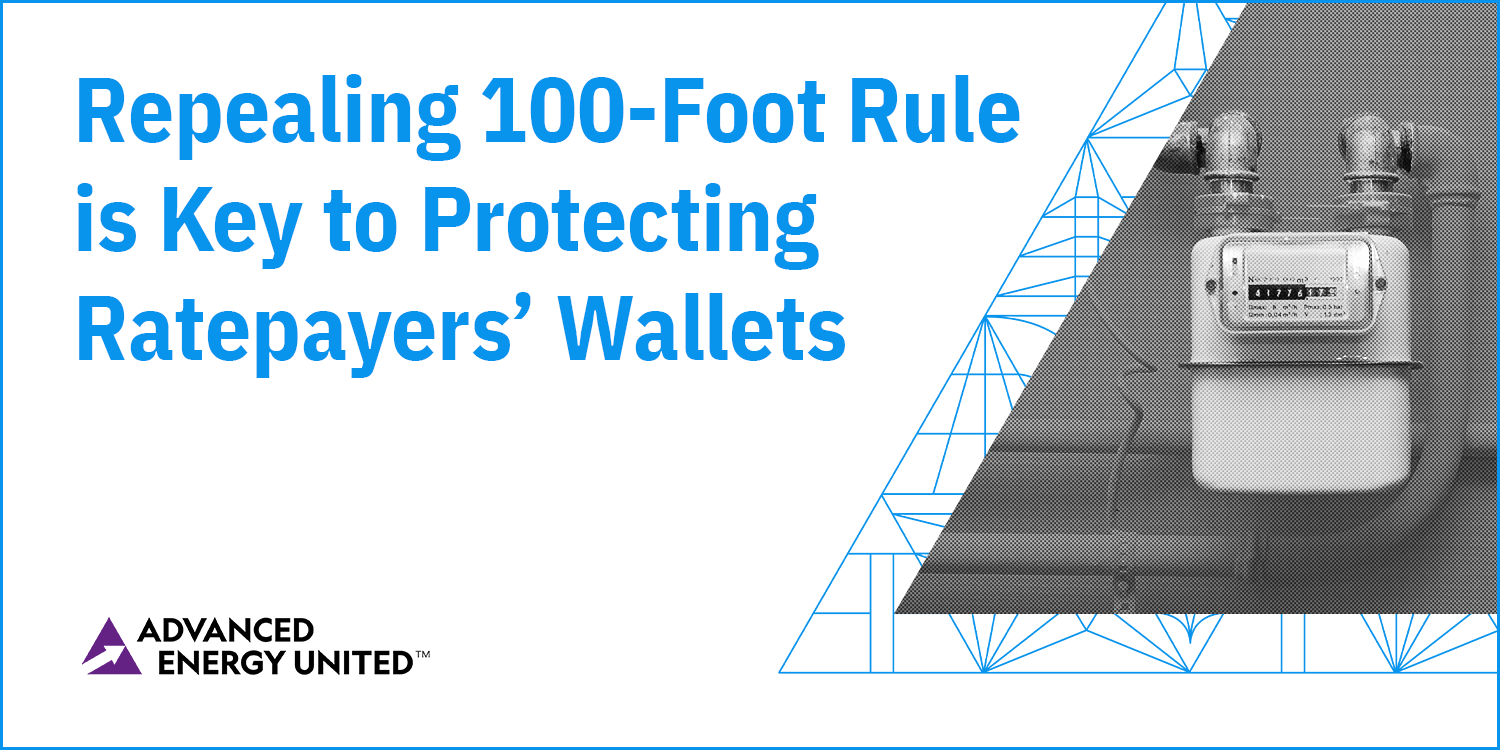
According to local legend, in New York, it’s still illegal to put an ice cream cone in one’s back pocket while in public on Sundays. As the story goes, this law was enacted to prevent thieves from subtly luring a horse away from its rightful owner before the dawn of the motor vehicle. Though silly, this example is indicative of a larger trend: old laws from the 19th and 20th centuries often remain on the books because it’s more of a hassle to repeal them than to simply stop enforcing them. This can happen as social norms change, or as new technologies eclipse old ones.
At best, these obsolete statutes make you chuckle. At worst, they cost you hundreds of millions of dollars a year. Such is the case with the infamous “100-foot rule,” which is hampering New York’s ability to achieve an affordable transition away from natural gas, a fossil fuel, and toward clean and healthy homes.
The 100-foot rule is New York’s natural gas line extension allowance, which means that gas utilities get to use money they collect from ratepayers to subsidize at least 100 feet of a new customer’s gas line. Line extension allowances rely on the logic that expanding gas service to new customers will provide public benefits because utility costs can be distributed among more customers and greater throughput (meaning the cost per “unit” of gas falls). But given that gas system expansion no longer makes sense for a state deeply committed to reducing its dependence on fossil fuels (see the Climate Leadership and Community Protection Act), the policy now distorts the market and pushes customers towards choices that increase stranded asset risk. That is, New York’s clean energy future will have little use for gas pipelines within the next few decades, which will make billions of dollars of infrastructure obsolete before that infrastructure is paid for or worn out. Continued spending on that system today locks a shrinking number of gas utility customers into higher and higher costs – to the tune of about $200 million per year.
And what about the “All-Electric Buildings Act,” championed by the New York General Assembly and Governor Hochul in 2023? The Act itself was a huge accomplishment, but only applies to new construction beginning in either 2026 or 2029, depending on the size of the building. Millions of existing New York homes that use oil, wood, propane, or electric resistance heating might still be converted to gas using the 100-foot rule, which falls on the backs of all other gas ratepayers already facing affordability challenges related to the high and volatile cost of natural gas, and the market-driven electrification trends making the gas system less and less financially stable each year.
Though New York has been a leader in the charge to bring cleaner and more affordable renewable energy and renewable heat to its residents, on this matter it has fallen behind its climate-leading peers. Over the last two years, Colorado, Minnesota, Washington, Massachusetts, and California have all either begun or completed the processes to revise or remove this outdated policy from their books. In all cases but Colorado, the states’ public utility commissioners – which are charged with ensuring prudent utility investments and protecting ratepayers’ affordable access to essential, life-sustaining energy services – made the change on their own initiative (see more here). In Colorado, the legislature determined that ending gas line extension allowances was critical to cost control and included it in Senate Bill 291 (2023), a package of provisions meant to promote energy affordability for constituents experiencing surging bills.
Because New York’s 100-foot rule is embedded within statute, the legislature must act to remove it. And each year they do not, they waste hundreds of millions of New Yorker dollars that could otherwise be either back in family and business pockets or offsetting the costs of new-age infrastructure, paving the way for an affordable clean energy future.
Advanced Energy United hopes that 2024 is the year that New York secures an affordable future for clean heat for its residents by taking this harmful old law off the books.